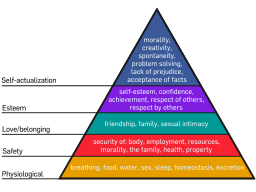Several years ago, a letter was published in the comments of the my local food co-op’s newsletter. The writer was expressing concern over the way cashiers handled food as they rang it up.
Thank goodness, I thought, someone is finally speaking out, voicing my very own complaint. As a middle-class white Seattleite, I’ve frequently dropped $5/lb. for organic tomatoes or avocados or nectarines, only to get home and find them so badly bruised I must eat them right away, or go back for more.
On deeper inspection, however, this was not the writer’s main concern. This writer was going beyond any obvious, demonstrable damage to soft, costly fruits. Rather, the problem being named was with the unseen type of damage, the rough handling and unconcern that led to cellular disruptions on the energetic level. Food knows, according to this source, when it is being mistreated, and its feelings get hurt. Apparently.
I hope I am exaggerating my memory of this letter. Yet the central concept — that invisible damage can be done to one’s groceries through a lack of mindfulness on the conveyor belt — was this writer’s key concern.
I’d say this person needs bigger problems.
One of the helpful constructs I’ve returned to repeatedly in my life is Maslow’s Hierarchy of Needs. (Even more frequently, I’ve had reason to return to Bloom’s Taxonomy of the Cognitive Domain; both of these are high on the list of Klein’s Repeating Internet Search Terms, an unpublished list with little practical value.)
Maslow’s basic foos is that you must deal with essential physiological needs (breathing, food, water, sex, etc.) then safety needs (security of employment, body, morality, the family) and so onward and upward, with needs for morality, creativity, spontaneity — the self-actualization needs — unaddressed without a strong foundation.
As Kurt Weill and Bertolt Brecht put it, “First feed the face, and then talk right and wrong.”
I worry that the letter writer has too many needs taken care of, and with too much leisure time is forced to develop a theology of fruits and vegetables. I see this often in my circles; it’s a left-coast abandonment of churchgoing, with spiritual practice replaced by articles of food faith, “preaching dogma, promising redemption, requiring devotion.” It’s why we wash plastic bags in my house, with woe unto the child who dares put an unwashed soda can into the garbage.
Another way to look at this is that if you’re spending time considering the spiritual needs of a loaf of bread, you’re very fortunate. You have food and shelter aplenty. You are not being victimized daily by a system you can’t control, so the piece of your brain that gets off on being vigilant has to look harder for what might be challenging your existence, and fight that fight.
I am very fortunate; I have most of my material needs me (though I could use a new pair of sandals) and I’ve never gone hungry a day in my life because of anything other than forgetfulness. I try to use my privileged voice to speak to real problems of the day, and I often get overwhelmed by choosing what injustice to pay attention to — but I do have a choice, and I’m grateful. I’m grateful at the small size of my problems, and the relative ease I have of overcoming them.
I’m grateful I can sit in an air-conditioned cafe in the middle of the day and write this to you.
Thanks for listening. If you have a rant about other people’s concerns, please feel free to share that here. I won’t judge.

